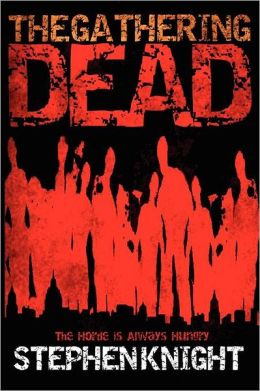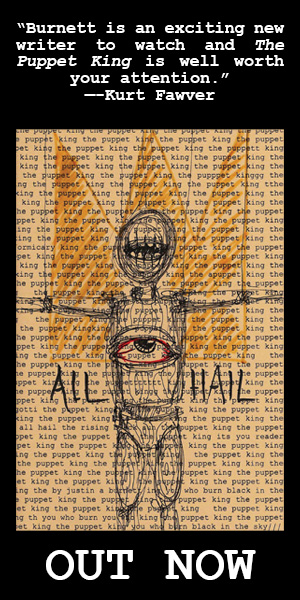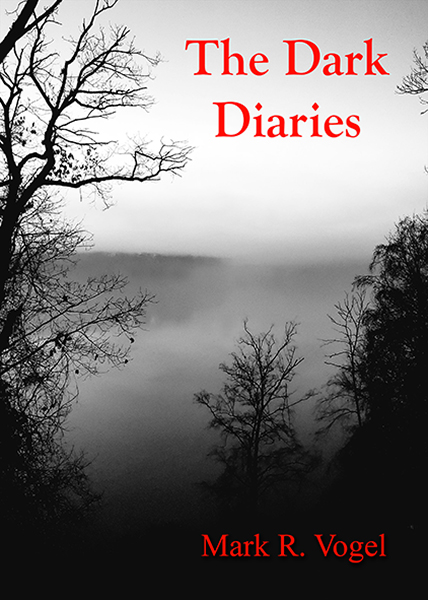Can you provide a brief summary of your novels, The Gathering Dead, the Rising Horde Vol 1 and the Rising Horde Volume 2?
Sure…The Gathering Dead starts right off as the zombie apocalypse hits America in full swing. It deals with a Special Forces team comprised of an understrength Operational Detachment (Alpha) and two senior SF personnel, a major named McDaniels and a first sergeant called Gartrell, who are sent to NYC to evac a high value individual and his dependent. During extraction, their Black Hawk goes down in the city, and they’re caught behind the lines. They have to fight to survive against thousands of the dead.
Left with the Dead is the next in the series, a novella (or “short novel†for those who don’t know what a novella is) that details 1SG Gartrell’s crises in New York City when he’s left behind.
The Rising Horde started off as one giant book, but it got split into two when it became obvious that the printed matter would be ridiculously overpriced. In the Horde, McDaniels and Gartrell are reunited, and with several other special operations groups, they set up camp in the Texas desert outside of Odessa to fortify and defend a pharmaceutical plant that will manufacture Safire’s vaccine. At this time, the dead number in the millions, and they’re swing south…toward Texas. Task Force SPARTA has to defend the installation, protect the civilians who are manufacturing the vaccine, and transport it out for wide distribution. It’s a total joint operation, but even that’s not enough as the rest of the nation slowly crumbled and falls around them.
What was your motivation(s) to write this particular series?
A couple of different things. I wrote The Gathering Dead explicitly to submit to Permuted Press, but by the time the book was finished, they were closed for submissions. I didn’t want to go through the whole submission thing again, and self-publishing was proving itself to become viable. So I went that route.
As for the story itself, I’ve seen lots of zombie films and read a couple of books—World War Z and Brian Keene’s City of the Dead, I think it was called. Most of the media deals with isolated survivors, folks with no real skills who are thrown together by circumstance. I was always puzzled by that, that society could break down so rapidly in a nation that has an advanced emergency response system, a peerless military, and around 700,000 cops. I decided I wanted to play against the grain and write a story with folks who have all the skills and practical experience necessary to face down the dead, make the right calls at the right times, draw upon the significant logistics chain and decades of tactics and doctrine…but still find their backs are pressed against the wall. That seemed much more compelling to me than the usual serendipitous survivor tale, where contrivance seems more than just consequential.
What did you find difficult to accomplish within your book? The research, character development and arcs, regional locations, etc?
Research is always fun. I know the Army’s aviation branch extremely well from having worked in and around it for about ten years, but the rest of the combined arms aren’t as transparent to me. Other branches, like the Navy and Air Force, I understand very well, but I don’t have the same kind of operational knowledge. In the 1990s, this kind of research was tough to do—just pick up any Tom Clancy book, they’re full of fancy and short on fact. These days, it’s not so tough, but you have to know what you’re looking for. Mistakes still happen, but at the end of the day, you’re writing fiction, not a research paper. You have to take liberties in order to tell the story in a reader-friendly way, because if you write for one specific niche audience, you’re never going to be able to break past that subset of readers. Some people will get pissy and rail that a specific factoid was incorrect—or even better, they’ll get on their soap box and complain about something which is actually correct, but there’s no changing their mind—but at the end of the day, a story well-told can withstand an occasional inaccuracy.
I tend to use settings I’m familiar with, though I haven’t been through Odessa in about thirty years. So for the Horde, Google Maps were my best friend. For White Tiger, I’d been to pretty much every place I wrote about. Well, except for Tiburon, California, but who cares about that?
How was the experience of seeing your work move from an idea to a rough draft to the finished product?
It’s a project. Anyone who’s managed a professional project in their lives is probably already familiar with the process. The only thing is, you’re the only person on the hook for every aspect of the product. There are very few team members who inform the project as it progresses. Sure, eventually you’ll have an editor, a copy editor, a cover artist, beta readers, etc., but at the end of the day, you’re the guy holding the bag.
When you sit down and write what is your perfect writing environment, i.e., quiet, music, a specific room in the house?
I listen to film soundtracks. Mostly stuff by Jerry Goldsmith, though others have crept in from time to time when the music is right. I discovered a composer named Sean Beeson, who’s simply amazing. Can’t believe the guy isn’t scoring pictures full time.
What helps get you in the mood? Watching classic horror films or…?
Inspiration can come from anything. I can’t see where it’s tied to any specific circumstance.
Who are 5 people, besides immediate family and nearby friends that you would want to be stuck with or in a group with during an apocalyptic event not exactly a zombie outbreak but something that would affect life as you know it on a global scale? Why?
I’m not going to name names, but I know a bunch of guys from the military who would be great to hang with as the walls of society finally come down. Also several LEOs come to mind. And, of course, Jessica Alba. I’d be the funny guy on the team who dies either a miserable or heroic death.
In a hypothetical apocalypse, what would be your preference; viral outbreak, extraterrestrial event, zombies, natural disaster, etc, and why?
Well, a natural disaster would be the easiest to manage from a survival standpoint. A viral outbreak is more horrifying, because it paralyzes everything. Zombies and extraterrestrials…zombies would be easy to deal with, because the threat is known, especially more so if it’s a “purist†kind of Romero-like outbreak. Aliens…well, if they’re coming to destroy us and they’re already in orbit, then they’ll have free reign to hammer every infrastructure we have. Kind of like the Blitzkrieg all over again, only with lasers, really powerful bombs, or even worse—asteroids.
What advice can you impart to authors just starting out who want to break into the horror/apocalyptic genre?
Write whatever appeals to you. Unless you go way overboard, there is an audience waiting. It would be helpful if you had a target market in mind, just so it makes sales easier. Get a top-notch cover—I recommend Jeroen ten Berge, if you can afford him. Amateur covers indicate amateur content, so spend the money—it’s worth it. Knowing composition is a special skill, and not everyone has it, though possessing Photoshop tends to instill a sense of false confidence. Always get your work edited. There are tons of books out there that do simply boffo business where commas are misplaced and POVs hop all over the page, but they’re not the norm—they’re the exception. Have your work read by critical readers you trust, people who can add meaningful contributions, not your mother and her “that’s nice, dear†review. And don’t end with a cliffhanger unless you’re writing a serial—that just pisses people off. It’s a tough row to hoe, so making things more difficult for yourself at the outset isn’t likely to lower your blood pressure.
And most importantly—develop a bulletproof work ethic. Write, even if you’re tired. Write, even if you’re sick. Write, even if your favorite TV show is on. Finish what you start. Start only what you believe you can finish. Repeat all of the above. It’s a business, not a dalliance. I get asked by people all the time about writing, and how to do it, etc., etc. I no longer answer most of these questions, because I can kind of tell who’s going to charge on, and who’s just looking for a new distraction. (Now after saying all this, let me tell you that I’m a month late in delivering a synopsis to someone—that’s bad!)
Who do you feel is directly responsible for your entry into the field of writing and specifically the inclusion of zombies into your work?
Writing…I’d like to thank Bova, Clark, Chalker, Brin, Herbert, Niven and Pournelle—especially them—Clancy, Koontz, and of course, King. Anyone who’s a genre writer has to give a tip of the derby to King, he’s been the touchstone for more people than I can count.
Zombies…George Romero, and maybe Danny Boyle. No one else. I still haven’t read a lot of zombie fiction, though I think Craig DiLouie does an amazing job with the subgenre, probably to the exclusion of anyone else. I would designate him as team leader, if so forced.
What and who are your favorite authors and books not in the zombie/horror genre? Tell us a little bit about them and how they may have affected your work.
All of the above. I was and remain a big consumer of science fiction and adventure stories, though I also read plot-optional “literary†novels on occasion. Most certainly, Larry Niven and Jerry Pournelle’s Lucifer’s Hammer got me majorly stoked, after boosting the book from my local Waldenbooks store in 1977. I discovered Stephen King in 1979 or so, starting with The Shining and then his spectacular The Stand, which is still one of the best TEOTWAWKI stories out there, with some pinches of science fiction and horror thrown in for good measure. David Brin’s Startide Rising was a real eye-opener, and aside from Herbert’s Dune was probably the most profound science fiction novel I’d read, and it was also amazingly commercial at the same time. A wonderful example of providence, such as it might be.
If you had to do it all over again, the research, the writing, the search for a publisher, etc, what would you do any of it differently?
Today? Hell, no, I’d never waste the time trying to get an agent or trying to attract the attention of a publisher. I sold City of the Damned twice, and it never made it into print until I did it myself. Agents are looking to close a deal, not assist authors in any way. Editors have no idea what’s going to sell, so they just buy what they personally like, and they like stuff which isn’t too edgy and can be sold to the acquisitions board without too much work. These people aren’t tastemakers. At all. You’ll find people on places like AbsoluteWrite where they will deny this until the cows come home, but here’s how I look at it: I made my $7,000 writing from 1985 to 2005. From February 2011 through December 2012, I made more than ten times that. By myself. No editors or agents required.
So no, I wouldn’t have wasted 25 years waiting.
Do you have any plans to continue writing when you finish your current project? This might be other projects in a different genre.
I’m always writing. I have a lot of irons in the fire. Also working on getting The Gathering Dead made into a picture. That takes balls, but it’s a business just like any other, and working to make it happen beats dreaming about it.
Where can readers and fans alike find out more information about your books and upcoming projects that you’re involved in?
http://knightslanding.wordpress.com. It’s the only real web presence I have, aside from Facebook. One day, I’ll start a real website, but that’s a battle for another day—I’ve got books to write!





